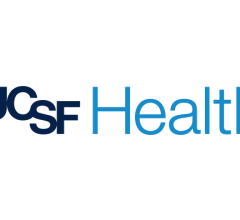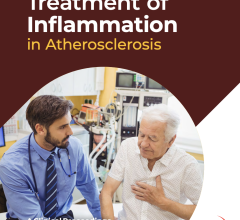
Industry trade shows and conferences seem to be making their comeback. The Healthcare Information and Management Systems Society (HIMSS) Global Conference and Exhibition was particularly poised to deliver the best of the best when it comes to digital transformation in both the delivery of healthcare and a quality experience for those in this demanding, rapidly evolving industry. In this latest of ITN’s ongoing One on One series with industry leaders, just before the event, I had a deep dive discussion with Hal Wolf, FHIMSS, president and CEO of HIMSS. He offered insights on the society’s new partnership with Informa Markets, key topics and innovations at HIMSS24, AI’s impact on the industry and his thoughts on healthcare sustainability. You can watch the full One on One video here.
A New Partnership for Growth
Last August, Informa Markets and the Healthcare Information and Management Systems Society announced a landmark partnership to propel the growth and evolution of the HIMSS Global Health Conference and Exhibition, recognized as both the most influential healthcare technology event of the year, and in North America. It draws 40,000 health professionals, tech leaders, providers and governmental organizations from across the globe. Informa Markets, one of the world’s largest exhibition organizers, took on management of the HIMSS Exhibition, while HIMSS continues to oversee developing expert content and programming.
The announcement reported that “the partnership will bring together the scale, expertise and resources of the world’s leading exhibitions organizer with the unparalleled thought leadership that HIMSS has established in the health tech community.” So, I asked Wolf:
ITN: What are some of the key ways the new collaboration with Informa Markets will impact attendees at HIMSS?
WOLF: I can’t believe it was August. That seems such a short time ago and yet it feels like we’ve been working together for quite a while. We’re very pleased with the relationship with Informa. HIMSS has always been on that forefront of thought leadership and, of course, we’ve operated the global conference for so many years. We really felt that with the right partner, we’d be able to expand our marketing reach better and bring some new innovations to the conference itself, and really start to take care of some of the new and upcoming methodologies that are in the marketplace, in terms of some areas like our Hosted Buyer Program that they brought this year, as well as improved venues for Venture Connect and expanding our Executive Summit. So when we got together with Informa we really talked about how do we grow not just the conference, but also the relationship between HIMSS and its members. And how do we expand on the experience of everyone who comes to the conference, not just the individual who is extraordinarily important that’s coming to the education programs or to see the exhibits, but also for the market suppliers themselves.
And, how do we make those connections work? So that’s what we were hoping to achieve. And I have to admit, it’s really surpassed everyone’s expectations. I think people are going walk into HIMSS this year and feel a real revitalization. They are going to see a lot more digital displays and new applications. A new website is already up and running.
The Program: A Personalized Experience
In many of Wolf’s presentations, both during last year’s event and in several leading up to HIMSS24, he has emphasized the importance of delivering a high quality, personalized experience for every attendee. It is safe to say the range of roles represented at the conference and exhibition is vast, ranging from IT programmers to high-level CEOs and global policy leaders. From networking — at all levels — from engaging with the latest technology providers and vendors in the exhibit hall, to helping people personalize their agenda to take full advantage of the educational sessions, is all key to the event’s continuing success. This year’s conference includes many top-of-mind presentation topics.
ITN: What are the hottest issues coming out of HIMSS24, and why are they so important?
WOLF: This is one of the great questions that pops up each year. And I think part of the answer is it depends on what part of the discipline within healthcare you’re coming from. The global health ecosystem is extremely broad and relatively complex. It’s one of the strengths of why people come to HIMSS.
We weave together everything from the CMIO, to the nurse practitioners to the IT experts to the individuals who are doing research, analytics and infrastructure support. So, one of the things we wanted to make sure from personal experience this year, and again, this is where Informa was able to step in, is how can I as an individual type into a mobile app where I can go to see particular areas of interest for me, and it can happen now along with pathways — how do you get from point A to point B? When you have over 1,000 companies that are exhibiting, that’s a big deal.
I think the hot topics this year that are driving the industry are similar to last year. Artificial Intelligence (AI) continues to be very prevalent as a toolset capability that is being developed at almost every level of the industry — from clinical decision support to small devices that people will wear on their hands, to radar that exists that can penetrate walls to see the activities of an individual, to large scale utilization of AI and machine learning for calculations on how best to handle operations, as well as how best to communicate with the individuals that are out in the market.
But we’re also seeing the whole global health ecosystem build some very strong capabilities of applications that are now beginning to take place of care at home. And what is the regulatory environment around that? One of the great strengths of HIMSS is not just what you do, but how you do it and how is that embraced by government, and what are the policies that are coming that might impact both the patient level, the operational level and also the innovation level? So, as always, there are fascinating conversations, both from the United States as well as on a global basis, with ministers of health that are going to be looking at policies that are now shaping, from both reimbursement challenges to think about how do we utilize new capabilities like AI, as well as an entirely rebuilt venture connect environment, where you’re going to see a lot of innovation coming from startups, as well as critical entrepreneurs who are going to be on the stage as well as in different areas across HIMSS24 in Orlando. So, we think you’re going to have quite a lot to choose from and new capabilities to reach it.
The Role of Artificial Intelligence
In past interviews, Wolf has been very focused on the global policies around AI and machine learning, and their application in healthcare. A lot of time was spent last year at HIMSS23, and at most other industry conferences, talking about what is new in AI and what is coming. In that time, a lot of policy work has been done on AI — where it is utilized, its expanding role, and how it will be applied across the healthcare organizations. That said:
ITN: How is artificial intelligence impacting the industry? How do you see AI continuing to evolve?
WOLF: That’s a great question. I think it’s impacting the industry on two levels. First of all, it’s probably the most advanced, forward thinking that the industry has had to do, in order to think about both the opportunity and the consequences of a new technology that is really enabled by quality data and information. And then it also gets back to how is that going to be utilized, at both the clinical level and at the patient level. Now the reason that’s so important, critically important, is because to do that you have to think about the operational implications. And you need to think about the training of the individuals that you have on staff to be able to think about the use of that data. We can get caught up on the technology itself, and there’s some very good discussions that will be coming up from a panel standpoint, as well as in the corridors of HIMSS — this is where some of the greatest discussions actually take place — in talking about the impact of tool sets that are coming from an AI standpoint. But in the end, you have to implement those tools. And so, one of the most important elements that I think people also will be hearing, as a part of the several hundred educational programs that take place, and featured presentations, is how have I been implementing these tools? What do I need to think about? How do I train my people? And it gets back to this very important concept again, the basic concept, of people, process and technology. The technology is taking a giant leap forward with AI and it’s making us think very carefully about our people strategy and our process strategy, which we know is the way you must combine the three in order to have success. And I think that’s going to be one of the biggest topics that people will be hearing and talking about around HIMSS24.
Planning for a Sustainable Future
The term “sustainability” has become much more than a buzzword, and is referenced multiple ways, with increasing focus, throughout the industry: its existence in healthcare systems, and also from an environmental standpoint. According to data from Health Care Without Harm, the world’s healthcare systems account for over 4.4% of global CO2 emissions. This past year we have heard and covered much about what organizations, companies and facilities are doing to reduce their carbon footprint.
Wolf has talked before about how the issue of sustainability takes on two different meanings, and is focused on both: First, the sustainability of the healthcare delivery system, with its challenges in workforce, and the need for professional development to keep pace with fast-moving changes; and second, the spotlight on sustainable practices that impact the environment, across the globe and in our everyday workplaces. This led me to ask:
ITN: Can you summarize the key areas of sustainability, and how you and HIMSS are leveraging your leadership in working to address these?
WOLF: I’d be honored to and actually, the sustainability question is one of the biggest thoughts that goes through my mind on a regular basis. So I’m going to take you on a small journey around this word sustainability, and why it’s so important, and why we also need to parse it. About 20 years ago when I came into healthcare, and we began to utilize clinical decision support, and started looking at the utilization of emails and video — and this was 20 years ago. We started talking about the sustainability of primary care and one of the physician leaders that I work with, Dr. Jack Cochran, an innovative leader for healthcare transformation, he always used to say, “This has to be the lowest form of targets ... how do you want to look at someone and say to their career, ‘Well, your hope is to sustain it,’ instead of grow and innovate in it.” So we began to recognize that the tools and the capabilities we were bringing forward could either be an uplifting experience or a negative experience.
Sustainability of practice has been under assault for the last 20 years, but not because of technology; technology has actually helped in many ways. And in some ways, it’s been a pain for many physicians to have to put data in. But that’s gotten so much better and the usability has also gotten so much better.
But the real question is, how do I utilize those tools? And how do I help them sustain my healthcare system that is around me? There are many healthcare systems around the globe, and they’re hitting a wall right now. We can look at the NHS in the UK as a single example. But there are many like them, where it’s really difficult to anticipate how they are going to take care of all of the individuals and the citizens that are counting on it, and keep it within the structure and the price model that allows them to exist? That’s not unique. The same thing is happening in the United States and system after system, we’re all being stressed out by demand versus supply. And this gets back to the critical need for both people and substitutes for individuals in the clinician space, which allows us to talk about devices and capabilities that will bring us forward. So sustainability of healthcare systems themselves — against reduced revenue that’s coming in, but increased demand — really demands digital health practice to step in to supplement both care prevention and anticipated care. These are really important areas.
And then finally, there’s the sustainability of the environment. As I’m redesigning my systems, as I’m thinking about how I’m going to utilize this new data, and when I’m thinking about inventory control and supply chain, how do I begin to think about the environmental impacts? You actually see sustainability targets that are incentivized, not required, that are being put up, for example, in the European Union, and you start to see it in the United States as well. In the US, over 8% of a carbon footprint in the US is from our healthcare industry alone. On a global basis, it’s over 5.5%. Healthcare does have a huge impact on sustainability of the environment. They can’t be separated from the sustainability of the system. They can’t be separated from the sustainability of the practice, and they have to be built into the corridor as to how our patients are going to interface with us. This is going to be an incredibly important component of healthcare over the next five years. We’re going to see a lot of emphasis continued to be placed on it, and they’re going to have to go hand in hand with
each other.
Future Outlook
The mission of HIMSS is to reform the global health ecosystem through the power of information and technology. As the industry evolves, the society continues to evolve alongside it. Regarding future initiatives:
ITN: What are the top priorities for HIMSS in the coming year?
WOLF: We’ve got a couple of important priorities. First of all, we’re being called upon to think jointly, both with healthcare systems and governments, about areas of policy like AI. As an example, how those will be deployed, data policy about what data is accessible, regardless of whether it’s being utilized in an application or just in general, the redesign of population health, and from a world standpoint and learnings from the pandemic: How are we going to ensure that we have forward thinking data and information available at a policy level and operational level, device level and forward thinking and healthcare overall? So that’s on the policy side.
On the technology side, HIMSS just recently launched INFRAM, which is our new infrastructure maturity model that really has some amazing focus points on it that we’ve been working on for quite a while, and you’re going to see it pop up from the cybersecurity standpoint, from the access standpoint, and from an efficiency and stability standpoint. We are very excited about that as well as EMRAM, which is now being utilized to figure out, as an example, quality and access. We’re going to continue to develop our models from a maturity standpoint, which are utilized by healthcare systems and governments around the world as both a strategic guideline as well as a measuring guideline to how people are doing.
We’re focused very hard on membership value, and we’re going to be rolling more and more into that capability. Our membership has grown so much in the last five years, it’s almost unbelievable. We had less than 80,000, which is still a big number, about six years ago. And today we’re around 125,000 members — all this growth in the last four years. Part of it was pushed by the pandemic, and peoples’ recognition that they have to deliver care differently, and digital health is a critical part of it. And this ties back to the fundamental component of HIMSS being a society that is weaved across many disciplines within the global health ecosystem. We’re going to be focusing on supporting our members. We’re going to be supporting our maturity models. Our media is going to be picking up and doing more interviews and working with organizations like yourself, because the message is really important, so people know where to get what they need, when they need it. We are very excited about the coming years and what HIMSS can deliver to our members.
WATCH THE VIDEO: One on One with Hal Wolf, FHIMSS, HIMSS President and CEO
SIDEBAR:
Getting to Know Hal Wolf, FHIMSS
Harold (Hal) F. Wolf III is the president and CEO of HIMSS, a global advisor and thought leader supporting the transformation of the health ecosystem through information and technology. He is respected internationally as a healthcare and informatics leader, with areas of expertise in mHealth, product development, integrated care models, marketing, distribution, information and technology, and large-scale innovation implementation.
Prior to taking the helm at HIMSS in July 2017, Wolf served as director, practice leader, information and digital health strategy, for The Chartis Group. Prior to The Chartis Group, he served as senior vice president and COO of Kaiser Permanente’s The Permanente Federation, representing more than 16,000 physicians. Wolf also held executive positions at MTV Networks and Time Warner, and served as senior advisor to McKinsey & Co.
Related content:
VIDEO: One on One with Hal Wolf, FHIMSS, HIMSS President and CEO
Find more HIMSS24 conference coverage here
VIDEO: Using Maturity Models to Measure Digital Health
VIDEO: Moving Digital Transformation Forward in Healthcare
VIDEO: Key Components to Creating and Implementing AI and Digital Transformation Solutions
VIDEO: The Benefits and Pitfalls of Artificial Intelligence in Healthcare
VIDEO: A Look at Cybersecurity and How Healthcare is at Risk


 February 04, 2026
February 04, 2026 









